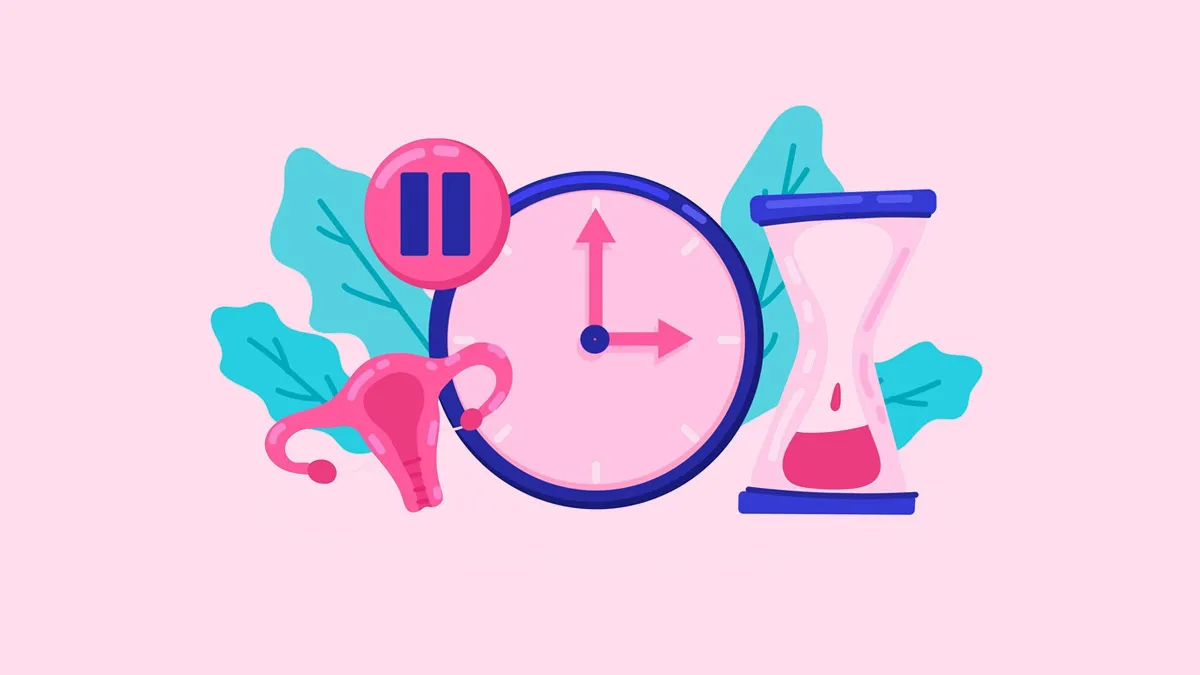
Menopause: What Is It, Risk Factors, Role of Hormone Replacement Therapy, And More
Just like puberty or pregnancy, menopause describes the stage of a woman’s life that causes significant biological, physical, and psychological shifts. It’s when menstrual periods stop permanently, and a woman can no longer conceive. Treatments- hormone replacement therapy (HRT), vaginal estrogen, and prasterone- aim to ease symptoms and prevent or manage ongoing conditions that may happen with aging. Dr Archana Tiwari, MBBS, M.S, DGO Consultant obstetrician and gynecologist, shares more.
Menopause: Iron Deficiency, Role of HRT, And More
As per Dr Tiwari, before menopause, many women experience heavier or prolonged periods due to hormonal imbalances. Moreover, there's a decline in estrogen, which impacts your health.
While that hormone doesn't directly affect red blood cell production, it can indirectly influence iron levels. Heavy menstrual bleeding, common in perimenopause, can deplete iron stores, potentially leading to iron-deficiency anemia. This is why pre-menopausal women, especially those experiencing heavy or prolonged periods, should be mindful of their iron intake and monitor for signs of anemia like fatigue, weakness, and pale skin.
Typical signs include hot flashes, night sweats, joint and muscle pains, mood changes, sleep disturbance, low libido, and genitourinary symptoms.
As for treatments, they aim to ease symptoms and prevent or manage ongoing conditions that may happen with aging. They include hormone replacement therapy (HRT), vaginal estrogen, prasterone, etc.
Don't Miss: Understanding Menopause: Signs, Symptoms, And What To Expect
1
2
3
4
What Is Hormone Replacement Therapy (HRT)?
Hormone Replacement Therapy (HRT) is the most effective treatment for menopausal symptoms. It can be offered to symptomatic patients with no contraindications following an individualized discussion about the risk of harm versus benefits. HRT is recommended for those with premature ovarian insufficiency (menopause occurring before 40 years of age) regardless of symptoms unless contraindicated. Nonhormonal medications may improve symptoms for women who have contraindications to or do not wish to take menopausal hormone therapy.
HRT replaces the hormones that your body isn’t making enough of. Once your hormone levels rise, most people find relief from their symptoms. It may also help maintain better iron metabolism by reducing inflammation and improving red blood cell production.
"Regular check-ups, open communication with healthcare providers, and informed choices about hormone therapy can help navigate this phase with confidence. By raising awareness and addressing misconceptions, we can ensure that menopause is no longer a silent struggle but a well-supported journey toward long-term well-being," wraps up Dr Archana Tiwari.
Don't Miss: The Best Diet For Menopause: Expert Tips For Optimal Nutrition
If you liked the story, please share it. For more such articles, stay tuned to HerZindagi.
1
2
3
4